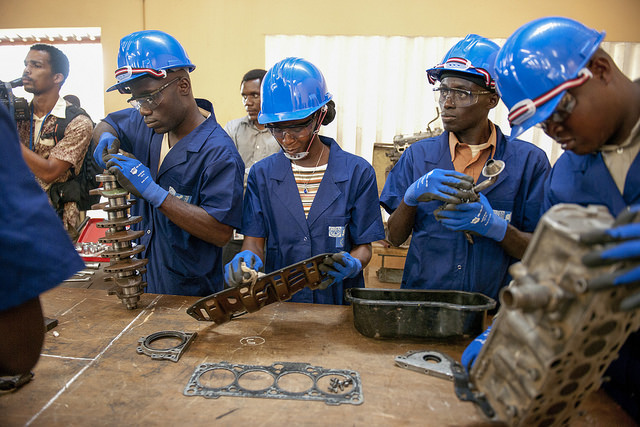Humanitarian Aid to Côte d’Ivoire Effects Change After Conflict
 Côte d’Ivoire is a West African country comprised of 24 million citizens. Since its 2002 civil conflict, Côte d’Ivoire has been crippled by poverty, disease and lasting ramifications of the war. Much must be done to bring sustainable development to the country; however, humanitarian aid to Côte d’Ivoire has been successful in repairing the damages caused 15 years ago.
Côte d’Ivoire is a West African country comprised of 24 million citizens. Since its 2002 civil conflict, Côte d’Ivoire has been crippled by poverty, disease and lasting ramifications of the war. Much must be done to bring sustainable development to the country; however, humanitarian aid to Côte d’Ivoire has been successful in repairing the damages caused 15 years ago.
The effects of war resonated throughout Côte d’Ivoire well past the end of the conflict. In 2010, the conflict resurfaced, which in turn required a huge intervention from the international community.
Reintegration of Child Soldiers
Côte d’Ivoire’s fragmented identity saw a surge of dangerous militia groups. Among many resources, these militia groups relied upon child soldiers to increase bloodshed. Côte d’Ivoirian children were provided weapons and missions to carry out their warlords’ demands. Due in part to extreme poverty rampant in Côte d’Ivoire, nearly 5,000 children were easily recruited. They serve on the front lines of civil conflict in addition to working as cooks, sex slaves and spies.
As the 2002 and 2010 conflicts have begun to stabilize, measures have been taken to reintegrate child soldiers into everyday life. While this goal is quantifiably difficult to achieve, organizations such as UNICEF have stepped up to the challenge. This has been done through programs such as the Prevention, Demobilization and Reintegration Programme to assist child soldiers escaping the grasp of militia groups. This program seeks to prevent future recruitment by returning them to their communities, enrolling them in school or training them in an occupation. This program has assisted thousands of children associated with armed militia groups.
Peacekeeping Success
The United Nations Operation in Côte d’Ivoire created a peacekeeping presence in the West African country in 2003. Its purpose was to protect the country’s citizens, provide legal outlets for disputes and ensure the disarmament of rebel militia groups.
The peacekeeping presence is of the utmost importance to humanitarian aid to Côte d’Ivoire. Recent years have seen success in these efforts. The country is finally stabilizing and resurging conflicts are becoming less frequent. Governmental agencies are being turned back over to Côte d’Ivoire from the U.N. and prosperity is returning to the country. In June 2017, the U.N. officially ended its peacekeeping mission in Côte d’Ivoire.
The ramifications of Côte d’Ivoire’s civil conflicts will continue to make their presence felt for some time. For now, though, the country’s citizens can glimpse a glimmer of hope after 15 years of turmoil and bloodshed. Much more must be done to address poverty, hunger and disease, but humanitarian aid to Côte d’Ivoire has proven to be effective in the face of turbulence.
– Eric Paulsen
Photo: Flickr
